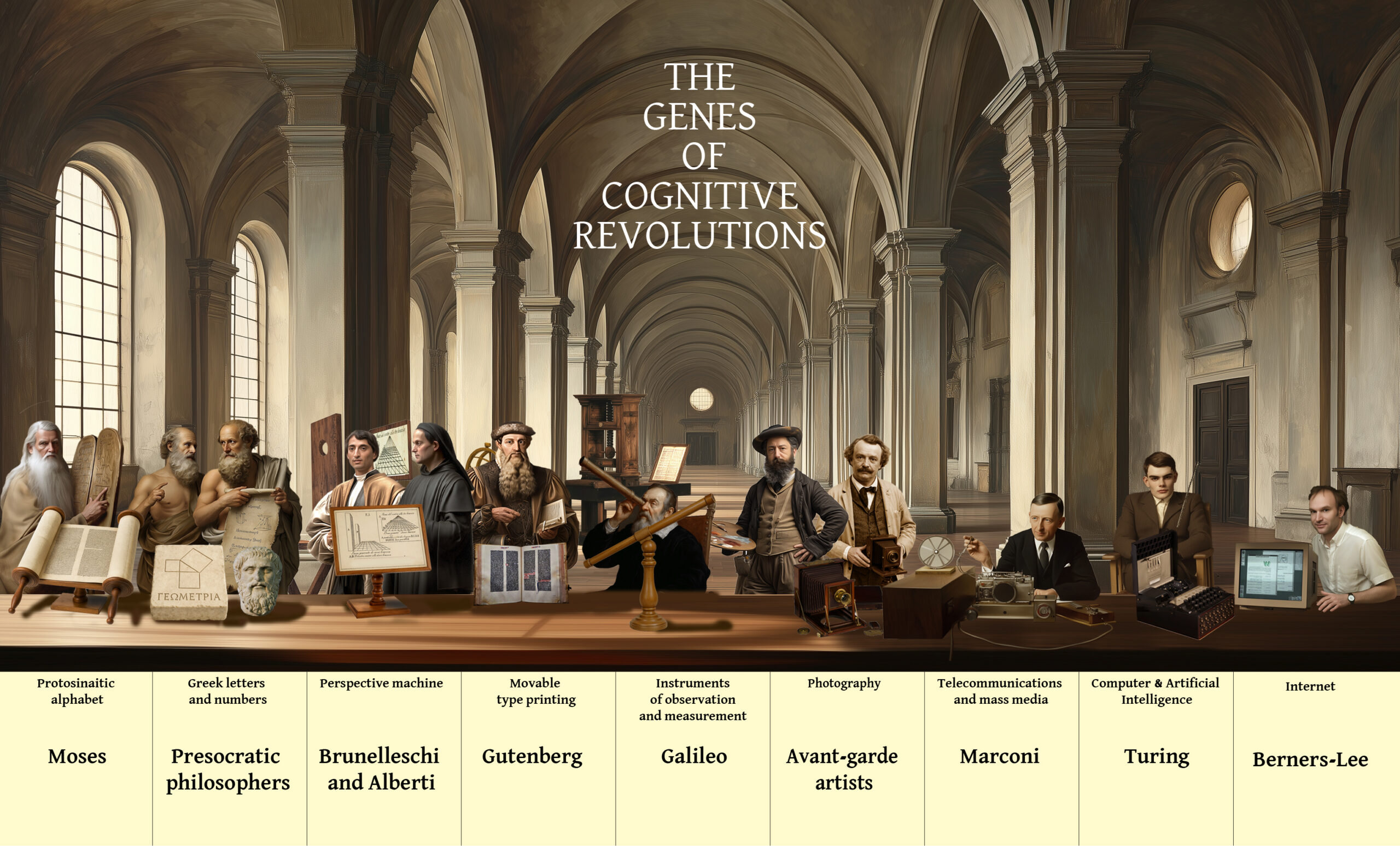Video Abstract
In the evolution of human intelligence, the greatest mutations can be traced to genius personalities who were able to interact correctly with cognitive technologies. Examples include the early Greek philosophers in the ancient era, the scientists of the experimental method in the modern age, and the precursors of contemporary art.
We are talking about historically existent individuals who were able to make evolutionary leaps in culture by starting with the adoption of cognitive technologies: for example, Moses, who introduced the alphabet and monotheism on Sinai, Plato and Aristotle who consolidated written philosophical thought by definitively distancing themselves from oral myth, Galileo who used the telescope and other technologies of observation and measurement to initiate the experimental scientific method, the Impressionists who reacted to the shock of the invention of photography by inaugurating the path of contemporary art. The mutations triggered in human history by cognitive genes change the DNA of human intelligence, generating new evolutionary forms, cultural organisms and kinds of civilizations often incompatible with previous cognitive species.
In every evolutionary mutation, something is lost, and something else is gained. These are often ambivalent achievements, also associated with conflict, the disappearance of civilizations, or the loss of cultural heritages. But biological and human history teaches that over time, amid losses and acquisitions, the positive sum has prevailed: the Sapiens species has indeed evolved into more advanced, adapted forms, winners in natural and historical selection. When the Greeks, or the Maoris in Oceania, adopted alphabetic writing, they lost the ability to remember and sing oral myths by heart for days on end, but at the same time, in Greece, philosophy was born with rational knowledge, laying the foundation for subsequent scientific and technical revolutions.
Even today it is reasonable to expect that some intellectual faculties will be replaced or made atrophic by AI cognitive technologies. But the important thing is to lay the groundwork so that once again, as in the past, human intelligence will be able to make a positive evolution: if predicting a direction is premature today, we must begin to imagine what new forms human intelligence extended by interaction with artificial intelligence may take.

The image is released under a Creative Commons Attribution 4.0 International (CC BY 4.0) license. Work by Gualtiero and Roberto Carraro – Homo Extensus. Report authors’ citation and link to original page

